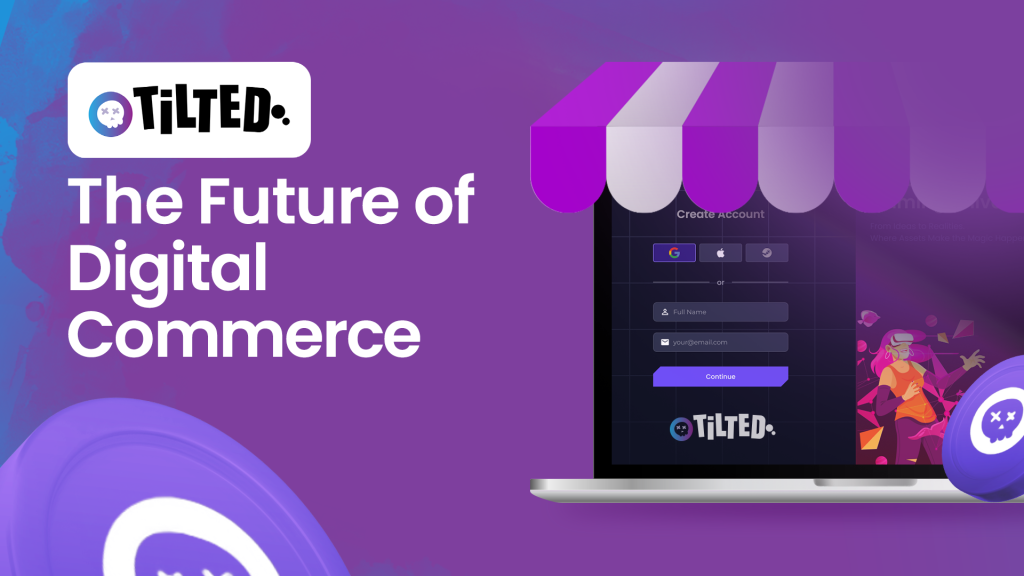The advent of Web3 is transforming the way we think about the internet, commerce, and digital interactions. With blockchain technology at its core, Web3 offers a decentralized framework where control and ownership shift from centralized authorities to individual users. For small businesses, this shift represents an incredible opportunity to overcome the limitations of traditional digital commerce and thrive in the new, decentralized landscape.
In this article, we will explore how Web3 technologies empower small businesses, providing new tools and opportunities for growth in the digital age.
The Challenges Faced by Small Businesses in Traditional Digital Commerce
Small businesses have long struggled to compete in the global digital marketplace, where large corporations often hold significant advantages. Here are some of the key challenges they face:
High Transaction Fees
One of the primary barriers small businesses face is the high transaction fees associated with traditional e-commerce platforms. Whether it’s through credit card processing fees, platform commissions, or third-party service charges, these costs quickly add up and eat into the margins of small businesses. For many, the cost of doing business online can be prohibitively high, making it difficult to compete with larger enterprises that can absorb these fees.
Limited Market Reach
Another challenge is the difficulty in reaching a global audience. While digital platforms provide access to vast markets, small businesses often lack the resources for effective international marketing and outreach. Furthermore, language barriers, currency exchange complications, and logistical hurdles make it even harder to serve customers outside of local regions.
Dependence on Centralized Platforms
Traditional e-commerce platforms like Amazon, Etsy, and Shopify serve as intermediaries between businesses and their customers. However, this reliance on centralized platforms comes with its own set of risks. These platforms control customer access, charge fees, and can change their terms and conditions at any time. Small businesses have little control over their data and must operate within the constraints set by the platform, limiting their ability to scale and innovate.
How Web3 Technologies Address These Challenges
Web3 technologies are uniquely positioned to address the challenges that small businesses face in traditional digital commerce. Here’s how:
Decentralized Platforms and Lower Fees
Web3 offers decentralized platforms that operate on blockchain technology, reducing or even eliminating intermediaries. This shift enables small businesses to conduct transactions directly with customers, cutting down on the fees that centralized platforms typically charge. With smart contracts, payments can be processed automatically and transparently, ensuring that businesses receive payments quickly without the need for third-party processors.
For example, decentralized finance (DeFi) platforms allow businesses to accept payments in cryptocurrencies, which can significantly lower transaction costs compared to traditional payment systems. These platforms also provide enhanced security and transparency, making it easier for businesses to trust the payment process.
Global Reach and Access
Blockchain and cryptocurrency are inherently global. By leveraging Web3 technologies, small businesses can tap into a global audience without worrying about currency conversion or cross-border payment issues. Cryptocurrencies like Bitcoin, Ethereum, and stablecoins enable businesses to accept payments from customers anywhere in the world, opening up new markets that were previously out of reach.
Additionally, Web3’s decentralized nature means that small businesses are no longer dependent on a single platform to reach customers. They can use decentralized marketplaces and peer-to-peer networks to connect with consumers directly, bypassing the limitations of traditional e-commerce platforms.
Enhanced Control and Ownership
One of the most significant advantages Web3 offers small businesses is greater control over their operations and data. In traditional e-commerce, businesses rely on platforms that own and control customer data. Web3 disrupts this dynamic by enabling businesses to retain ownership of their data and directly manage customer relationships.
Through decentralized identity solutions, businesses can authenticate customers and manage interactions without needing to store sensitive information on centralized servers. This reduces the risk of data breaches and puts control back into the hands of the business owner.
Moreover, tokenization and smart contracts allow businesses to create and manage their own economies within the Web3 ecosystem. For example, small businesses can create loyalty tokens or NFTs that reward customers for repeat purchases or engagement. These tokens can be traded on decentralized exchanges, providing additional revenue streams and customer incentives.
Real-World Examples of Web3 Empowering Small Businesses
Web3 technologies are already making an impact on small businesses around the world. For instance, decentralized marketplaces like OpenBazaar and Zora allow businesses to sell directly to consumers without platform fees. These platforms enable small businesses to retain a larger portion of their revenue while reaching global audiences.
Additionally, NFT (non-fungible token) marketplaces have provided new opportunities for small businesses in creative industries. Artists, musicians, and content creators can sell digital assets and retain ownership of their work, all while engaging with a global community of supporters.
Web3 represents a new era of digital commerce, one that levels the playing field for small businesses. By reducing transaction fees, expanding global reach, and giving business owners control over their data and operations, Web3 provides a wealth of new opportunities for growth and innovation. As blockchain technology continues to evolve, the potential for small businesses to thrive in the decentralized economy will only grow.
For small business owners looking to break free from the constraints of traditional e-commerce platforms, Web3 offers a compelling alternative. It’s time to explore the possibilities and unlock the full potential of digital commerce in the age of decentralization.



